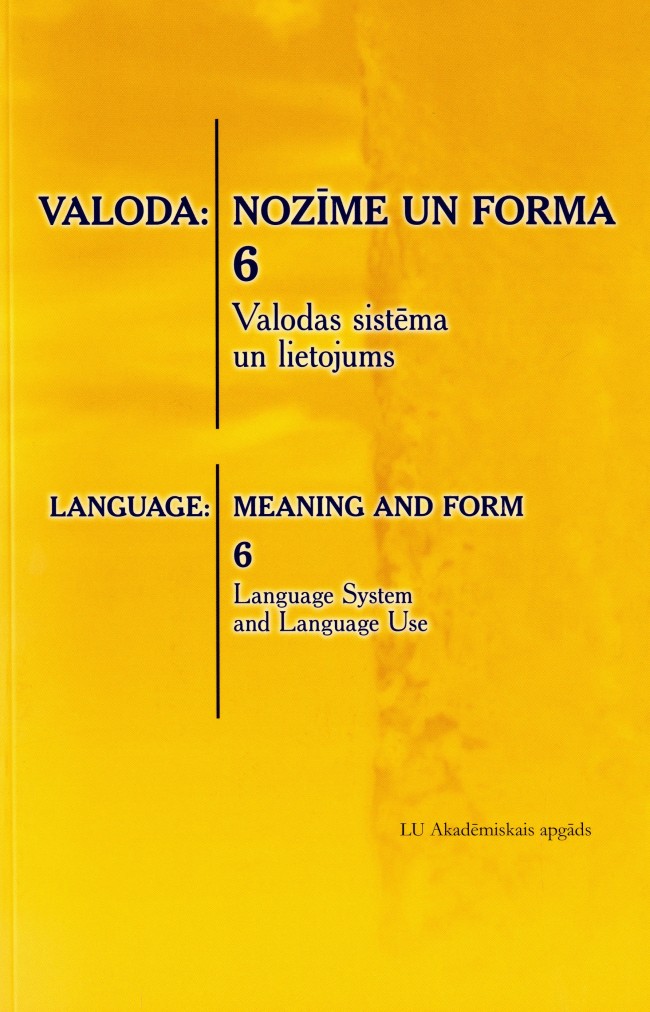Ģenitīveņi: gramatiskās sistēmas elementu pāreja leksiskajā sistēmā jeb leksikalizēšanās
Indeclinable genitives: the transition of grammatical elements into the lexical system, or lexicalization
Author(s): Anita ButāneSubject(s): Language and Literature Studies, Theoretical Linguistics, Lexis, Baltic Languages
Published by: Latvijas Universitātes Akadēmiskais apgāds
Keywords: ģenitīvs; ģenitīvenis; vārdforma; vārdu savienojums; leksēma; leksikalizēšanās
Summary/Abstract: The descriptions of the so-called ģenitīveņi (indeclinable genitive forms of nouns, used attributively) in Latvian usually stress their productive character, thus proving their permanent importance as an object of research. In this article they are analyzed within the framework of the theory of lexicalization. The key aim is to distinguish the possible ways of lexicalization regarding the indeclinable genitives.From a structural point of view, Latvian linguists traditionally distinguish two types of indeclinable genitives: 1) compound indeclinable genitives, and 2) prepositional or prefixal indeclinable genitives. Taking into account their form, semantics and syntactical functions, they are usually described as having the features of various parts of speech, but are defined as nouns that only have the singular or plural genitive case form, are normally used as attributes.Considering lexicalization as a process of change whereby a language unit – either syntactic construction or word formation – acquires new formal, structural and semantic properties, and as the transition of grammatical elements into the lexical system, we might say that the indeclinable genitives present two types of lexicalization: 1) a case form or word formation > lexeme, e.g. when the archaic Latvian noun vāci (‘the Germans’) took the genitive form vācu (‘of the Germans’) and later became an indeclinable genitive vācu (‘German’); 2) word combination or syntactic construction > lexeme, e.g., the genitive collocation mūsu dienu (‘of our days’) became an indeclinable genitive compound mūsdienu (‘contemporary’).
Journal: Valoda: nozīme un forma
- Issue Year: 2015
- Issue No: 6
- Page Range: 80-88
- Page Count: 9
- Language: Latvian

